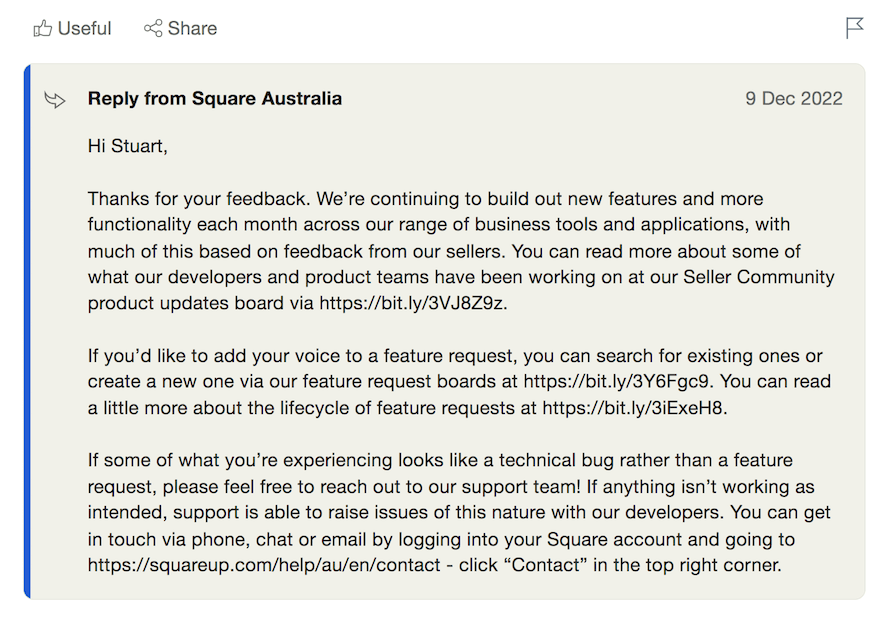SEO Reputation Management: A Beginner’s Guide
If you click to purchase a product or service based on our independent recommendations and impartial reviews, we may receive a commission. Learn more
SEO reputation management can be a tricky thing to balance – and get right.
After all, you’re trying to boost perceptions of your brand and business, while never falling back on techniques that could be perceived as manipulative or deceitful.
Yep – SEO reputation management can be a bit of a minefield. But fortunately, it’s one you don’t have to traverse alone.
Below, we cover what, exactly, SEO reputation management is – and why it matters to your business. Then, we’ll walk you – step by step – through the SEO basic reputation management process, before offering up our top six tips for managing your brand’s perceptions online.
Ready to improve how your audience of customers, stakeholders, and investors see your business? Read on!
What Is SEO Reputation Management?
SEO reputation management is the process of influencing your business’s online reputation through the use of SEO (search engine optimization) techniques.
The goal? To minimize the visibility of content that’s negative about your business. While maximizing the visibility – and credibility – of the stuff that’s positive.
Why Do SEO and Online Reputation Management Matter?
SEO reputation management is all about perceptions.
It’s how your business is viewed by its customers, by its audience; by its stakeholders, and its investors. Through this lens, your reputation isn’t simply about your brand – it is your brand!
So why does SEO reputation management matter? Because your business exists in a crowded, competitive space – meaning your pool of potential customers has so many other options to choose from. That, in turn, means that if they don’t perceive your brand to be trustworthy, high-quality, and reliable, there’s no shortage of alternatives to jump ship to.
Plus, today’s consumers are more motivated by social proof than ever. 93% of customers say that online reviews affect their purchasing decisions – and they’re 63% more likely to trust brands with reviews, compared to those without.
Ultimately, staying on top of perceptions around your brand and business’s reputation is vital. A good reputation will increase awareness of your brand, improve your customers’ loyalty to it, and – ultimately – drive more sales and revenue. A bad reputation, though, can dent trust in your brand, tank sales – and even lead to legal and financial repercussions.
The Process of SEO Reputation Management
SEO reputation management isn’t something you “set and forget” – it’s an ongoing process of optimization and iteration that you’ll always need to stay on top of.
But where to begin?
Step 1: Assessing Your Current Reputation
You won’t know where you can start improving your brand’s reputation until you actually know what that reputation is in the first place. So before all else, evaluate your existing reputation.
To do this, you can:
- Pop your business’s name into Google, and see what comes up! Look for what people are saying in online forums and blogs, as well as in reviews on third-party sites.
- Comb through your business’s social media platforms to get an understanding of what your customers are saying about your brand there.
- Conduct customer surveys to get relevant, real-time customer feedback about how they perceive and feel about your brand, products, and services.
- Get to grips with your competitors to understand how your brand’s reputation stacks up against your rivals’.
Step 2: Creating a Reputation Management Strategy
Next, you’ll need to create a reputation management strategy. This involves:
- Identifying your reputation management strategy’s goals. What are you setting out to achieve – is it more followers? More customers? More sales? More email sign-ups?
- Coming up with KPIs (Key Performance Indicators) to measure success. How will you know you’ve been successful – through measuring your business’s NPS (Net Promoter Score)? By collecting anecdotal feedback? Or via more concrete metrics?
- Developing a plan of action. Finally, it’s time to come up with a set of tailored, targeted strategies to boost your business’s reputation across the SERPS (Search Engine Results Pages). Not sure how? We’ll explore a range of specific, actionable techniques in the “Top Tips for Effective SEO Reputation Management” section below.
Step 3: Monitoring Your Business’s Online Reputation
Remember, SEO reputation management isn’t a “one and done” kind of endeavor. It’s a process! Which means it’s a constant cycle of trying, testing, and tweaking. So be sure to continually check in with your audience to ensure your brand perceptions are at healthy levels.
To do this, you can:
- Set up Google Alerts to be notified as soon as anyone mentions your brand online. You can also request to be notified whenever anyone speaks about keywords relevant to your industry, products, and key people.
- Monitor online review sites to stay on top of what people are saying about your business, products, and services there.
- Conduct regular market research – like sending out questionnaires, and running focus groups – to get immediate, first-hand insights into how your customers feel about your brand.
Top 6 Tips for Effective SEO Reputation Management
Ready to start turning your SEO reputation management dreams into actionable reality?
Read on for our top tips for effective reputation management SEO.
Tip 1: Creating Quality Content
Anyone well-versed in the field of SEO knows that creating high-quality content is the most effective trick for ranking in Google – and dominating the SERPs.
But creating quality content is also vital for your business’s reputation.
Why? Because publishing compelling, engaging, and informative content:
- Builds trust and credibility with your audience – establishing your brand as an authority in the space, to be quoted and relied upon throughout your industry.
- Provides value to your audience – making them more likely to share and talk about your content.
- Boosts your rankings in search engine results – allowing you to push up the content about your brand that you want to be there, and push down the content you don’t!
Find Out More
- Learn more about the factors that influence Website Credibility – we list the top 30 factors in our guide!
- Need some help creating top notch content? Check out our tips on Writing for the Web
Tip 2: Using Social Media for Reputation Management SEO
When it comes to understanding, monitoring – and, most importantly, improving – your business’s online reputation, social media is a vital weapon in your arsenal.
While social media may have once been a place to organize parties and share holiday snaps, the statistics suggest that now, people are more likely to use it as a place to share their opinions on their favorite (and not so favorite) brands.

What’s more, 79% of consumers expect brands to respond within a day of reaching out over social media – which means responding quickly, and with empathy, is vital.
To make social media a fundamental part of your online reputation management strategy, be sure to:
- Engage regularly with your audience across all your business’s social platforms – responding to and liking comments, as well as posting regularly.
- Share content from your blog, or articles you’ve been featured in positively, to encourage engagement.
- When it comes to addressing less-than-favorable feedback, be prompt – and be professional!
Tip 3: Encouraging Positive Reviews and Addressing Negative Ones
Negative reviews are, unfortunately, part and parcel of doing business. But how customers will perceive your brand won’t swing on those bad reviews alone – but on how you respond to them.

Key here is that magic word – empathy. So when responding to negative reviews, try to always put yourself in your customers’ shoes. Understand their pain points, their frustrations, their disappointment – then respond in a calm, polite, and friendly manner to assuage their doubts. And offer a resolution that’ll not only keep them happy, but keep them a customer.
Of course, you should also respond to the good reviews, too. It shows you’re on top of things, and that you respect the time your customer has taken to leave you some glowing feedback.
Tip 4: Building Relationships With Customers and the Community
Reputation is really all about relationships.
It’s about not seeing your brand as “above” your customers, or existing on a separate plane to them. It’s about interacting with your community – engaging with them, and forming enduring connections.
To do this, we recommend:
- Being authentic and transparent. Customers appreciate it, and you’ll gain a reputation for being relatable, empathetic, and – most importantly – human!
- Hosting events and workshops that align with your industry and your brand’s values.
- Rewarding your most loyal customers. Whether it’s through the odd freebie, an occasional discount or deal, or a rewards program that gives back to your most engaged followers, treating your best customers right is an excellent way of building lasting relationships within your community.
Find Out More
- Looking for the best ways to reward your customers? Our guide on How To Create a Loyalty Program has some great tips.
Tip 5: Utilizing Influencers and Brand Ambassadors
Paying a recognizable figure to endorse your products and brand – be it starring in an advertising campaign, or putting their name to a testimonial about your service – is an age-old digital marketing trick.
These days, of course, you don’t need a big budget to get important people talking about your brand. And you’re not limited to the biggest stars – the Roger Federers and Kevin Bacons of the world – to make an impact in your industry.
In fact, there’s a range of influencers – micro, macro, nano, and mega – just waiting to promote your brand to an engaged, niche segment of your audience. Better still? That, because some of these influencers (those of the micro variety, for instance) have fewer followers, they come cheaper – although often with just as much clout in the space as their macro counterparts.

Tip 6: Using Online Reputation Management SEO Tools
Your reputation management SEO strategy should be built around everything we discussed above – from regularly engaging with your audience, to responding to customer reviews, to creating high-quality content for your website and social channels.
But if you don’t have the time, or the resources, to do all that efficiently, there’s still hope – and it comes in the form of online reputation management tools.
These tools do the hard work for you: tracking mentions and reviews of your brand across platforms and websites. A few we recommend are:
- Buzzsumo
- BrandMentions
- The Brand Grader
- Similarweb
- Mention

Summary
“It takes 20 years to build a good reputation and five minutes to ruin it. If you think about that, you’ll do things differently.”
Today, Warren Buffett’s iconic quote still strikes an eerily resonant chord – particularly when we’re talking about your brand and business’s reputation.
The bottom line? That how people perceive your brand isn’t just important – it’s absolutely integral to your business’s present and future success – and the long-term sustainability of your approach.
So be sure to put in the time and effort to get SEO reputation management right – sooner, rather than later!

Leave a comment